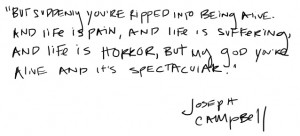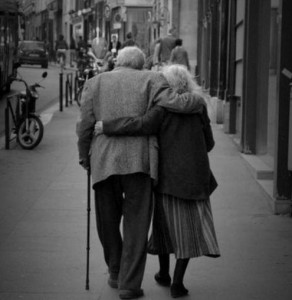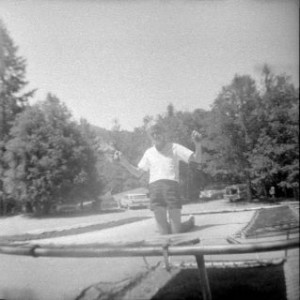
So many words have been and will continue to be poured on the wounds left in the wake of the Charleston murders. Many of my friends have written and/or shared articles and videos expressing reactions ranging from sad and bewildered to angry and outraged. What I’m feeling, however, was evidenced in the voice of President Obama: weary. Because every time this happens, we go through the same series of motions (and emotions). We huddle together, the tragedy is the focus of our thoughts, prayers and posts, there are millions of words written and spoken calling for every appropriate reform and change — and then nothing happens. Until it happens again. According to Mother Jones, there have been almost 80 mass shootings in the U.S. involving four or more victims in the past 30 years. And didn’t we all think — at least hope — that Sandy Hook, where 20 little children were massacred, would be the mass shooting that would finally spur permanent change? We say, “This must stop!” and we seem helpless even to make it slow down. I’m sick to death of this all-too-familiar ritual. The news. The outrage. The outpouring. The funerals. The “one year later” stories. And then, another mass shooting. The news. The outrage. The outpouring. The funerals. The “one year later” stories. If you really want your heart to break, Google “mass shootings” and you’ll find many articles entitled, “How To Stop Mass Shootings” — all dated several years ago….after one or another of America’s mass shootings. I feel like we can’t go through this one more time — all the while knowing that we will.
June 24, 2015
Charleston
June 10, 2015
Feisty, cute, adorable, STOP.
I was watching an old episode of “Frasier” last night in which Frasier’s father starts dating the widower of a long-time family friend, sparking this exchange:
Frasier: Dad, listen, Stan’s been gone a while now. I mean, you’re not teenagers, you’re two mature people reaching out for some companionship. I think it’s adorable.
Martin: [outraged, offended] Adorable?!
=======================================
When I was an undergrad one of my professors spent much of the class encouraging us to examine the use of the word “feisty.” Her premise was that in our culture we only apply that word to either the very young, the very old, or the very weak — someone who is otherwise powerless but shows strength despite our expectations. I got it immediately because even as a relatively young person at the time, I was already noticing that our culture reserves the adjectives “cute” and “adorable” for babies, puppies, elders — and especially elderly couples.
It’s a verbal ploy to remove any potency or gravitas from a situation we otherwise take very seriously: the pair-bonding of two human beings. We don’t typically attend weddings of 20- or 3-something couples and, gazing at the bride floating down the aisle, whisper, “She’s so adorable!” We save our serious words — “beautiful,” “elegant,” “perfect together” — for the young and young in love.
A 64-year-old Huffington Post contributor named Anne Brenoff tried to make a similar point on her own blog and was thoroughly excoriated in the Comments section. There were the inevitable references to “the word police” and, of course, the claims that “I call everyone adorable!” and the senior who responded that she “loves” being called adorable. All missing the point.
The point is this: Words are very, very powerful. Until we truly grasp that, we can’t communicate with one another on these topics. Microaggressions, a form of unintended bias, is a term most commonly applied to race, gender and sexual orientation but it’s relevant here as well. To characterize a dignified human being as cute, darling, or adorable underscores our culture’s dismissal of that person’s (or their relationship’s) power and status. To see a young, newly-formed couple holding hands and observe, “They’re so perfect together” is to acknowledge that you are taking them seriously. To view an elderly, newly-formed couple holding hands and respond (in one of those squee, golly-gosh-darn voices), “They’re so cute together!” means something completely different. And one of the things it means, I suspect, is that the elderly couple is considered asexual. I think assumptions about sexuality (or lack thereof) play a big role in how we characterize our senior population. I seriously doubt that if it were well-known that the newly-hooked-up 65-year-old couple at the party were the ones who were having the hottest, sweatiest, nastiest sex on the planet, anyone would look at them, cock their head like they were gazing at a poodle puppy and say, “Oh my gosh, they’re so adorable!”
Save “cute” and “adorable” for puppies and kittens and babies. I’m a force of nature and will be until the day I die. Any relationship I’m going to be in will neither be cute and adorable. It’s going to be passionate, fiery, wild, consuming, fervid, frenzied, sexual, sensual, and breathless.
In other words, so much more than cute. And that doesn’t mean I’m feisty. It means I’m mighty.
April 19, 2015
Lessons in Grace, or: Be Nice, It’s Easy
My 200+ Friends on Facebook are often subjected to photos of Geronimo Cat, my domesticated feral bulls-eye tabby. There are many reasons I share his picture so often, among them: 1) he’s my first cat and I’m head over heels in love, 2) he’s truly gorgeous, and 3) I’m learning to become a better photographer. Typically, after any given Status Update featuring Geronimo’s pic, I can count on the same four friends responding generously with a “Like” — all Cat People themselves.
One day a few weeks back I took what I thought to be a particularly stunning picture of Geronimo and posted it as my Status Update with the caption of, “It’s been a few days since I’ve shared a cat photo and I know you’re jonesing for one.” Well…..a friend of my niece’s, a man I’ve never met but with whom I’ve formed a fun and easy Facebook acquaintanceship, wrote, “I was going to say something if you hadn’t posted one by tomorrow.”
I’ll never forget the power of his playful comment. All at once I felt: amused, validated, honored, and warmed by his words. In that one response, he pulled off what so many of us pass on the opportunity to do: he made another human feel good with his graciousness of spirit. And what he actually did was give a little of himself. We all know people who are so stingy with their goodwill that they can’t give to another human in even those small and painless doses, yet opportunities for giving of ourselves in this way are abundant (especially on social networking sites), if only we will watch for them and act on them.
Someone once wrote, “They may forget what you said — but they will never forget how you made them feel.”
My Facebook Friend made me feel like he valued what I value. And I will never forget that.
February 3, 2015
“I’m using e-cigs to quit smoking” – true that?
This morning I read three articles in local newspapers about e-cigarettes. Smokers quoted in all three articles stated that they were using the “candy-flavored lung polluters” — as the Sacramento Bee recently characterized them — to quit smoking.
As a person who smoked tobacco cigarettes for over 20 years before quitting cold turkey, I know a few things about stopping smoking. So, to those of you who claim to be using e-cigs to give up smoking forever, I encourage you to take an honest look at yourselves and answer these two questions:
1) Are you tracking your consumption and gradually smoking fewer and fewer e-cigs? If the answer is “no,” then you’re not in the process of quitting.
2) Do you have a quit date established that falls within a reasonable period of time? If you are truly using e-cigs to quit smoking, then not only are you smoking fewer on a weekly basis, but you should have a goal of being completely smoke-free that is no more than six months down the road.
The fact is, many addicts are merely substituting one nasty, expensive habit for another, with no intention of kicking it for good. (They’re fooling themselves. Addicts are very good at this.)
The fact is, as I wrote in my previous rant against electronic delivery systems (“E-cigs, smoking, addiction, and nicotine. The facts,” June 22, 2014), only one-fifth of people who use e-cigarettes as a stop-smoking aid succeed in quitting long-term (according to the journal Addiction).
The fact is, vaping has surpassed cigarette smoking for teens as their oral fixation of choice. (I threw that in because, frankly, it scares me how popular it is with the kids.)
The fact is, according to state Director of Public Health Ron Chapman, e-cigarette aerosol contains 10 chemicals that are found on California’s Proposition 65 list of those known to cause cancer, birth defects or other reproductive harm, including benzene and formaldehyde. (Yummy!)
But you’re a smoker — you close your ears to statistics and you close your eyes to the sight of a lung-damaged ex-smoker wearing an oxygen tank 24/7. And you’re an addict — you don’t want to give up your friend, your rituals, your comfort, your little zingy high.
Believe me, no one gets that better than I do. But be honest with yourself. Are you using e-cigarettes to quit smoking, or are you just using them?
Because if you’re quitting, I trust that your quit date is written in red on your pretty new 2015 calendar. And that it’s sometime before Labor Day weekend.
June 22, 2014
E-cigs, smoking, addiction and nicotine. The facts.
A certain San Francisco radio personality brags that she quit smoking months ago, when in fact she’s switched to e-cigarettes. Another friend tells me on the phone that she “hasn’t smoked a cigarette in ages!” — but all she did was switch over to the electronic variety. The insidious aspect of these new nicotine delivery systems is that they lull people into thinking they’ve given up the habit when in fact they’re still as addicted as they ever were.
Here’s why.
I smoked over a pack a day for 20+ years. When I finally quit in my mid-30s, I quit cold turkey. I’d been reading an article about a little girl with cystic fibrosis whose mother had to hold her upside down daily to clear the mucus from her lungs and I thought, “Here’s a child who would do anything to have healthy lungs, and I’m voluntarily destroying mine.” I quit the next morning. And oh, it was hard. I carried around Jacquelyn Rogers’ “You Can Quit Smoking” book with me everywhere I went, so I could frequently refer to it for motivation. At the time, people still smoked at their desks in offices, so I brought carrot sticks to work and chewed them all day long. After a week or so the physiological craving subsided, but that’s when the tough work began: dealing with the emotional/psychological addiction. In short, I was depressed. I felt I’d lost my best friend. I couldn’t imagine doing anything without my cigarettes: how could I get through work, how could I drive? How could I face the day? In those days I spent two weeks each summer at a cabin in Lake Tahoe with my family. That first year, I distinctly remember wondering how I was going to get through my vacation without smoking. And I remember one awful day, sitting outside on the deck of the Tahoe cabin, sobbing because I couldn’t smoke. That’s nicotine addiction.
Because, before quitting, I had used cigarettes for everything: when angry, to celebrate, when anxious, while reading, with my coffee, with my wine, to wake up, after meals, to help with boring commutes, to deal with grief, everything. I never felt my feelings — I had cigarettes to do that for me. Nicotine is no different from any other drug in that aspect — it’s used by smokers to self-medicate.
On the other hand, if you’re using e-cigarettes to help you quit, more power to you. Unfortunately, only one-fifth of people who tried e-cigarettes as a stop-smoking aid succeeded in quitting long-term, according to a recent study published in the journal Addiction. However, quit-smoking rates in general are dismal (according to drugfree.org, 35% of American smokers tried to quit last year and only 6% succeeded) — but millions have beat the odds. According to the New York Times, only 19% of American adults smoke, down from 42% fifty years ago. That’s a lot of successful quitters.
The bottom line: if you’ve decided to give up cigarettes forever, good for you. Quit cold turkey if you can, or use every aid at your disposal if you can’t — e-cigs, hypnosis, patches, lozenges, gum, prescribed antidepressants, acupuncture, individual or group therapy, whatever works. Just please don’t fool yourself into thinking you’ve given up the habit until you’ve actually given up the habit. If you’re still reaching for something to suck down into your lungs, you’re still a smoker. If you’re still nicotine-dependent, you’re still an addict. When you are no longer a smoker, you’ll know it. And you’ll feel a rush of freedom like never before.
June 1, 2014
Changed

I recently met a young woman who is one of those people born to be in the healing arts. Her very presence is a blessing. As is often the case with bright-light individuals, she is deeply into yoga, spirituality, and living cleanly and lightly on the Earth. We got to chatting during a recent gathering and decided to keep in touch via Facebook. When I logged on yesterday, there was a Friend request from her.
From cryptic comments she’d made, I knew that her long-time partner has cancer. She’d made recent references to treatments that went well, and then not so well. I know that he is a young man, and because my partner was also a young man when he developed testicular cancer a decade or more ago, I assumed that that was the brand of C they were dealing with. And because all turned out well for my partner – and for Lance Armstrong, who famously battled that very same cancer — I assumed all would be well.
After she and I Friended each other I browsed her Wall. I saw her partner for the first time. The two of them together look like a glossy magazine ad for the best kind of life two beautiful people could ever live, probably at a base camp in Nepal. Radiating promise and hope and bliss and love, these two gorgeous souls smiled back at me from Zuckerberg’s social network program, and made me smile right back. Because her photos are interesting I started flipping through them – she and her guy have traveled all over the world, I notice — and then I see that a friend of theirs has posted a photo of her boyfriend with the Comment, “This is [name]. He is battling brain cancer.”
BRAIN CANCER. Stomach-punch heartsick held-breath ohmygod ARE YOU EFFING KIDDING ME, UNIVERSE?!! Is how my thoughts ran. This beautiful boy, this child of the planet, this lover of life, this shining light, has BRAIN cancer?!!!
All morning long my mind reeled. Here I am, so truly far away from the situation – I barely know her, and have never met him – and yet so gobsmacked by the horror of it. When my partner came home from morning services, I explained to him in choked sobs what I’d found out, then cried for an hour. Later, on my walk, I kept looking up at the sky, “Really, God? Really, Universe?”
I don’t know how common this type of cancer is in 20-somethings. I lost another friend to brain cancer a few years ago; she was in her 60s. I do know that people young and old, rich and poor, etc etc get cancer, fight cancer, live with cancer, die from cancer. I don’t usually go around thinking about it because, well, that way lies madness. But I can’t shake this. All day long, whenever I heard someone say something vaguely whiny, I thought, “Or you could have BRAIN cancer!” Watching a television show in which 40-year-old actresses were complaining about their wrinkles, I thought, “Or you could have BRAIN cancer.”
Can your whole life and perspective be changed by someone else’s battle with cancer? I’m not sure I even feel right about it, as though I’m “getting something” from someone else’s – what? What are they even calling it? His illness? His struggle? His challenge? His journey? I want to take care how I characterize what they are experiencing: this is not mine to name or make assumptions about.
Worse, I suspect that my heightened sense of the preciousness and fragility of all things will fade. I mean, not that I particularly take life for granted on a daily basis – I am filled with gratitude – but right now, I’m way above baseline. I’m up there in self-actualization mode, where brushing my teeth this morning was a blessing and touching the cat’s fur brought tears to my eyes, so awed was I by its softness. And I remember being elevated to this state of heightened appreciation and awareness a few years back when another friend’s wife, in her early 30s, with two small children, was expected to die of Stage IV cervical cancer. As I held his hand through that, all the life-appreciation clichés came to pass: air smelled sharper, colors seemed richer, grass felt velvety. She survived that, they eventually divorced, and I went back to baseline appreciation mode.
Someone I don’t even know has brain cancer, and I’m feeling more connected to life. But every day someone I don’t even know has cancer. Every day I could be outraged to the point of transcendence. As I said, it doesn’t seem right, “using” other people’s struggles in this way. On the other hand, is this not what every person wants, for meaning to be made from their life and existence? Whenever something Bad happens, the survivors say, “I want something Good to come of this.”
And so, a friend’s life companion gets sick, and those ripples come lapping into my awareness and something feels changed. For one thing, I know I don’t want to hear any complaining. From anyone, and least of all from myself. I may even say it out loud if I hear any whines today. I may look at the whiner and say, “Or you could have BRAIN cancer!” Someone does. You don’t? Then shut up and live.
September 15, 2013
What I’ve Learned About Posting on Facebook
When I first started using Facebook, I was the worst. Giddy with newcomer’s joy and accustomed to the relative “privacy” of the Faire yahoogroups community to which I’d been posting for years, I chatted about personal problems, talked about financial woes, delved into health issues (facepalm), and posted game apps like they were horserace scores. I was out of control. I confess, it’s taken me longer than it should have to get even a little bit Facebook savvy — and still sometimes I slip.
With that said, here are tidbits I’ve gleaned as to what makes a good post on Facebook. These are lessons I’ve learned; your mileage may vary. In other words, I’m not trying to tell you what to do or how to post. Okay, maybe I am, just a little. And there’s the thing: Even though I know better, I’m still guilty of violating my own guidelines at times. But I’m better than I used to be. And I haven’t posted a cat photo in days.
1. Keep posts brief. Long narratives are okay sometimes, if there’s a payoff, but otherwise get a blog.
2. Be entertaining, if possible. Not everyone has the comedic skills of Steve Martin or the writing skills of Stephen King, but do strive to bring a smile.
3. But don’t try too hard. This comes off on Facebook as, well, desperate.
4. Try not to post your Scrabble Bingos or other point scores reached on games. Even those who love you more than life itself really don’t care. Really.
5. You get to post one Petition per year. Choose wisely.
6. Unless you have a very “interesting” group of friends, know that if you routinely post cat photos and videos, the audience for those will be very small.
7. Life vignettes of the “you’ll never believe what happened to me!” variety are great. Refer to guidelines in #1 and #2 above.
8. As in Real Life, politics and religion are dicey. Understand that you may be starting something you didn’t want to start, and you’re not going to change anyone’s mind. But if your inner activist is nevertheless called to Facebook, preach away, children. However, the caution of #6 applies here.
9. You don’t really need to be warned about ads or spam, right? Or personal posts about money, health, personal relationships, your job, your boss, etc.? Sometimes people like to post in ways that bring them support for their troubles; who am I to scold? Just tread carefully in these very choppy, very dark waters.
10. Sharing articles that move, inspire, inform and blow the socks right off is wonderful – probably not very many Friends will read them, however.
11. Try to be positive. In general, posting hair-raising news of the day for no good reason (and, arguably, Amber Alerts may be a good reason) isn’t really Facebook-Friendly. Other good reasons include important updates about encroaching fires and horrible traffic jams. A good rule of thumb is the old “before you speak, THINK: is it True, Helpful, Inspiring, Necessary, Kind’?
12. No guilt-tripping. “Like and Post This On Your Status for One Hour or You Hate Jesus and a Puppy Will be Drowned” is no fair. Not all of us like to re-post.
13. A personal request: please no photos of Gruesome Things. I don’t want to have to scroll past you.
14. Funny always wins. Not necessarily Insulting Funny, but funny in the way that hilarious kid in 11th grade was, always making people laugh effortlessly and easily. Fortunately, I have several Friends who are like this and their posts are pure gold.
And, finally:
15. Snopes. Snopes. Snopes. Please God, Snopes.
August 18, 2013
Do you get it yet? You have to stop smoking, now.
I lost a friend to lung cancer last week. In the 1980s, she was my director for a number of community theatre musicals. On March 18th of this year I received an email from her through that theatre’s Yahoogroups list, thanking all of us for birthday wishes and signed, “Love to all!” It’s five months later, and she’s dead. A vibrant, life-loving woman in her 70s, gone.
Maybe people in their 20s, 30s and 40s (according to Gallup, the largest group of smokers) think that when they’re older they won’t treasure life as much. How can we make young smokers understand that, at 75, they will want to live active, energetic lives just as passionately as they do now? Maybe that cognitive leap isn’t possible. Tobacco companies are banking on that inability to see as a 20-something just how desperately you will cling to life as an elder — and just how worthwhile life will be.
When I heard what my friend had died of, I Googled “what is it like to die of lung cancer?” and read an About.com article with growing horror. Nonstop coughing, gasping for breath, increasing weakness, decreased appetite and weight loss, confusion and, of course this: “It’s very likely that you will experience pain in your final stages of lung cancer.” Severe pain, as the cancer spreads to your chest and spine bones. If you smoke, think of someone you love very much experiencing those symptoms. Unbearable, right? Please love yourself enough not to want the same for you.
And, by the way, I’m not just, well…blowing smoke. I get that puffing can be awesome and quitting can be hell. I was a pack-a-day smoker for 20 years before quitting cold turkey at age 35. I was motivated by an article I’d read about a little girl with cystic fibrosis whose mother had to dangle her upside down and whack her back several times daily to clear her chest so the girl could breathe. I thought, “That little girl would give anything to have healthy lungs, and I’m voluntarily harming mine.” I quit the next morning.
If you want stop-smoking tips, message me. I will help.
April 20, 2013
Ignorance
I posted this on Facebook recently, motivated by some irritating (hate-filled) comments I’d recently seen. The quote got quite a few Likes and at least one Share so I thought I’d memorialize it here. It’s a bit more cynical than my usual worldview but, sadly, there is some truth to it.
“Ignorance MUST be bliss….so many people insist on embracing it.”
June 4, 2010
Caged Kids
It was called Swivel Hips. It was a particular trampoline maneuver and, in all the years I attended Camp Fire Girls’ Camp Seabow as a young girl, successfully executing a perfect Swivel Hips remained one of my highest priorities — right up there with cadging an extra cup of hot cocoa when Cookie stepped out of the Mess Hall.
To do a Swivel Hips, you jump fairly high, do a seat drop with your legs straight out in front, then in one graceful and exhilarating motion, while swinging both arms high to provide momentum, you “…bounce up to a straight position (without landing) and then perform a half twist and land in the second seat drop facing in the opposite direction” (Wikipedia). Done right, it’s like dancing on air.
When I did Swivel Hips, I was surrounded by the happy faces of my friends and a more silent but majestic audience: the tall, fragrant pines of the mountains north of Laytonville, California. Jumping on the trampoline in Seabow’s meadow, protected by fellow campers while encircled by deep green forest was freedom and joy and intoxication like I’ve never known since.
I hadn’t thought of Swivel Hips in years but today, while taking my walk, I heard a caller to KGO’s legal advice program explain that his child had been invited to a trampoline party, and that the parents were being asked to sign release-of-liability forms before the hosts would let their children jump. I know that contemporary trampolines are enclosed by a tall barrier of netting. Our camp trampolines weren’t caged in; instead, we were trained as spotters, and each of us stood at strategic places at the perimeter while the jumper performed. Listening to the caller, I pictured little 21st century Sophias and Noahs in line for their turn, stepping up to the safety-wrapped equipment, and dutifully handing a waiver to the solemn gatekeeper, who checks for proper notarization before admitting each child to the cage. While it’s likely my parents had to sign some sort of waiver when I went to camp, it certainly wasn’t equipment-specific, as I’m sure the Camp Director didn’t consider the trampoline any more of a threat to us than the lava-hot melted marshmallows we pulled from our skewers while making S’mores around the campfire (not to mention the nasty-tempered wild boars which freely roamed those hills and often wandered into camp). And in all the years I attended Seabow, not one girl was ever injured.
Don’t get me wrong; I understand “better safe than sorry.” And I’m not making a case for the sort of 1950s recklessness which led to a generation of children riding in cars without seatbelts. But we do need some sort of happy medium. It is better to be safe than sorry — but please let’s not raise our children to be safe and sorry.
Because I’m deeply thankful I never had to practice Swivel Hips in a cage, surrounded by protective blue netting instead of gazing into my friends’ “you can do it!” faces. It just wouldn’t have been the same.







